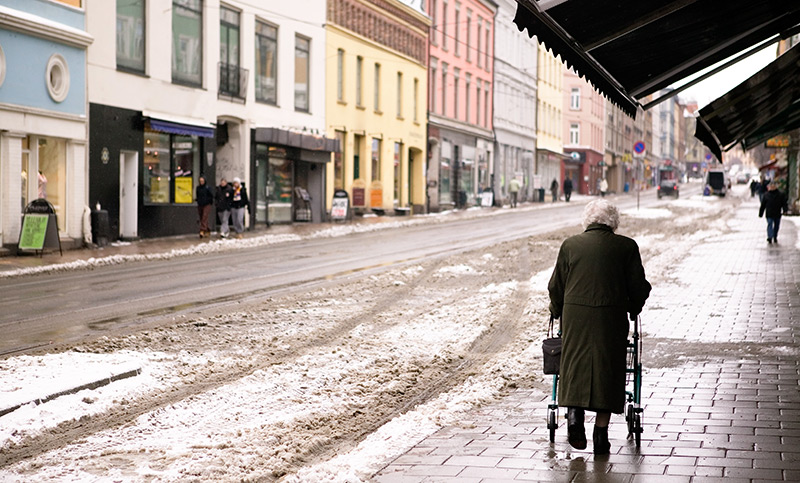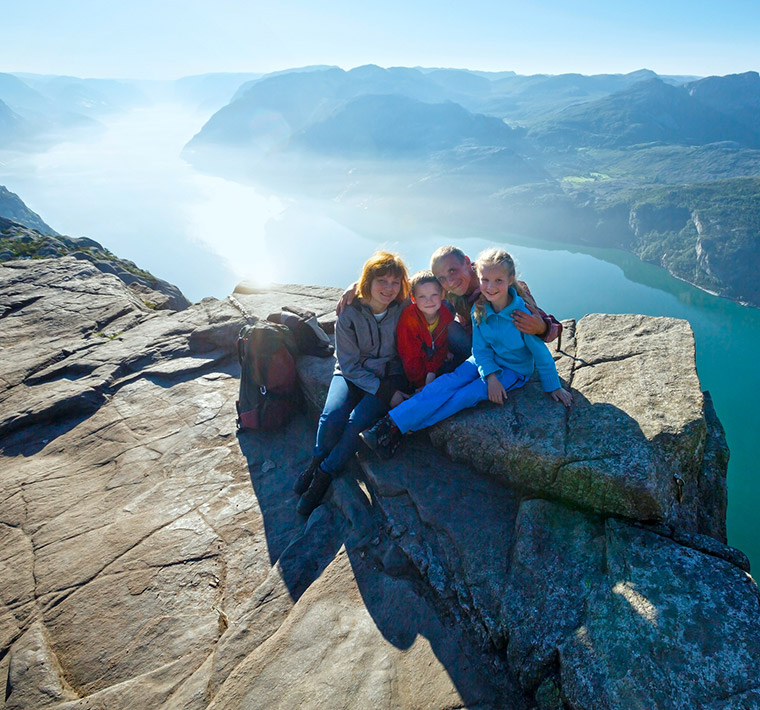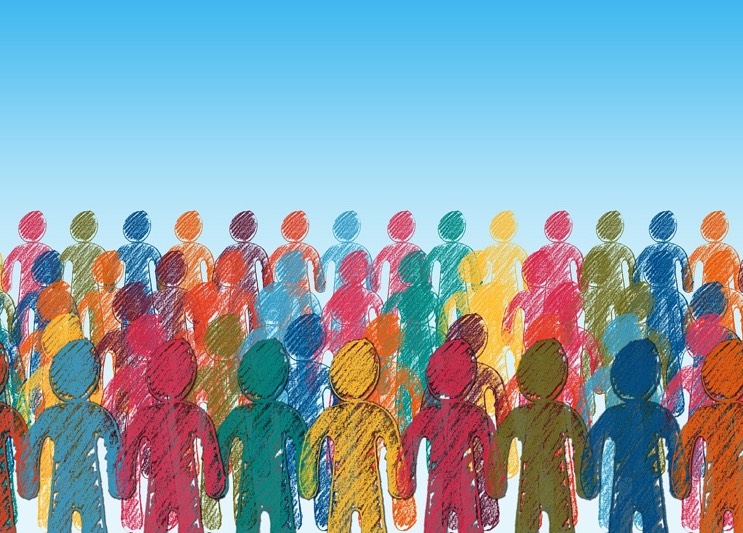A new report highlights a worrying problem for Norway. The population is ageing fast, and that brings a major economic headache for the future.
Right now, the biggest problem faced by Norway is the necessary transition away from the oil and gas industry. The country's economy has been fuelled by the deposits under the Norwegian continental shelf for decades.

With reservoirs running dry, the economy needs to diversify. But with investment in modern technologies such as electric battery and charging infrastructure, offshore wind, and autonomous shipping, Norway's government does at least have a plan.
The same can't be said, yet, for the problem of a future demographic shift. A new report from Statistics Norway (SSB) paints a stark picture that cannot be ignored.
Norway's population is growing – and ageing
The present population of Norway stands at around 5.35 million. SSB estimates that by 2060, this will rise to around 6.1 million. By 2100, it could be around 6.3 million. These predictions are actually less than a previous report, but with less immigration and a lower birth rate, the underlying problem remains.
On a percentage basis, Norway’s population is getting older, fast. SSB senior researcher Astri Syse calls the expected change that will leave Norway with more elderly citizens than young people aged up to 19 in just ten years an “historic shift.”
“Clear signs of ageing, lower population growth and more elderly immigrants are trends that will characterize population development in Norway from now on,” says Syse in the report.

The share of the “very old,” which SSB defines as those aged 90 or above, will also increase. This increase could be as much as five-fold: from 45,000 to 210,000 by 2060.
An economic time bomb
What's the problem? Simply put, it's the mathematics of money. A bigger proportion of the population needs retirement income, but a smaller proportion is actually working and paying tax.
To put in more concrete numbers, 10 people in employment supported 1.9 pensioners in 1970. By 2016, that figure had risen to 2.3 pensioners. But by 2060, it's expected to be almost as high as 4. Something is needed to plug the shortfall in pension funds, but also a likely increase in healthcare costs.
Read more: Pensions in Norway
That's either an increase in tax, a decrease in pension payouts, or a later retirement age. Or, of course, a combination of all three.
In 1967, the life expectancy of Norwegians was just over 70 for men, but today it's 81. Women typically live a few years longer than men. That longer life expectancy trend is set to continue, creating even more pressure on Norwegian pensions and healthcare costs.

One pension researcher believes that the country needs to extend its retirement age. “This solution means that the proportion of life we spend as pensioners is kept stable, while at the same time we can avoid increasing poverty among pensioners as pension payments continue to be adjusted downwards,” said Axel West Pedersen to Science Norway.
Read more: Child Poverty in Norway
“By increasing the age at which we allow people to draw on their guaranteed pension rather than lowering the amount of the benefit, we can ensure that the minimum benefit in the pension system follows the general trend for wages overall,” West Pedersen added.
A change in immigration patterns
In 1980, Norway's population stood at just four million people. A lot (but not all) of the rapid rise since then has been due to immigration. However, a surplus of births vs. deaths of around 15,000 annually has also been observed.
Both immigration and surplus births are expected to drive the population growth up to 2040. However, the birth surplus is expected to decline by then, as the “baby boom” generation will have died out. By 2050, SSB expects to see more deaths than births.
This means that any increase in population after this point would be because of immigration. However, immigration patterns are also expected to change. SSB expects the rate of immigration to slow down, but not drastically.

“From 2022 onwards, we project that annual immigration will decline from around 45,000 to around 37,000 in 2100,” states the report.
The impact of recent events
Somewhat surprisingly, the recent health crisis won't make a major impact on the projections, according to SSB. They do, however, admit that recent events make the report's findings more uncertain.
“Population projections are inherently uncertain. The uncertainty usually increases the further into the future we look. It has been especially challenging to formulate assumptions this year – even for the short term,” states the report.
However, while mortality is not expected to rise, “it will lead to lower fertility and immigration in the short term.” The border closure has meant people planning to move to Norway may now not come. The researchers also believe families may reconsider plans to have more children.
The full report from SSB can be read as a PDF here.


Well excuse me.
This report presumes that a number of workers are supporting those on pensions.
That is the most ridiculous thing i have heard. It presumes the workers have not paid
taxes and deserve their pensions. Yes, the elderly derserve to be rewarded for their contributions.
If you think for one minute that on my retirement in Norway i or any other worker becomes a drain on society, my boy you have another thing coming.
When you retire, will you become a drain on society ør will you have paid your taxes and deserve your retirement.
With respect, most individuals tend to change ideals such as this as they mature.
Allmost retired health professional.
You have a misconception of national pension schemes in Scandinavia and Central Europe. There is a so called “contract between” generations. While the older generation pays for the younger generations’ education, the older generations’ pension is paid by the younger generation (once in workforce)
What you are describing is the government playing bank for you for the 40-50 years of your work life, to pay your pension in the end. This does not make much sense for them, since they would be sitting on huge piles of money for a long time they can’t use, and is also against the concept of the social system of these countries where taxes are used to balance inequality (knowing about the imperfection of the education system etc)
Obviously we are only talking bout the basic pension, not your additional employer’s pension and your private pension fund.
I really hope that you are not Norwegian or living in Norway since a long time, otherwise it would be a shame how little you seem to understand the system you choose to live in.
Mu husband and myself (UK citizens), now in our 70’s are considering moving to Norway as we already have a house here inherited from family. We lived in France for 16 years and can support ourselves financially. Would this be possible at our age? Also is there a wealth tax? Plus as I am half Norwegian and spent time in Norway with grandparents before I was 5 years old can zi apply for a Norwegian passport? Thank you in advance if you can reply to these questions.
Hi Doreen, best thing to do is look at the Norwegian immigration website http://www.udi.no. It explains about the various categories of residency/citizenship and the requirements. Your age shouldn’t be a barrier, but as self-supporting individuals you would need to establish that you meet the income threshhold. If you gain simple registration (allowing you to stay in the country for more than 3 months) that wouldn’t entitle you to state benefits such as full subsidised health care, though you would still for the time being (under EU transitional membership) be able to use the EHIC card for urgent treatment. Otherwise, international health insurance could be taken out.
Next step up would be full residency, under which you would pay taxes in Norway and by that route become eligible for health care. (I’m only harping on health care because sadly it’s increasingly an important factor as we get older!)
My husband and I are in a very similar position to yourselves. Sadly our half-nationality doesn’t entitle us to any benefit when it comes to applying for citizenship. In the last (or last but one) Norway newsletter there were some very helpful links to both UK and Norwegian government websites plus UDI, and info relating to our status regarding Brexit. It seems the Norsk gov is currently working on a new application format, and for us Brits timing is important as it’s likely there will be more hoops to jump through after our Brexit transition period.
Having lived a when as a child will not Gove any pluses. It’s all about rules and this is not a giver. Why do you want to live on Norway? It is so expensive, sky high prices are in all aspects of norwgn life.
Even compared to France, which is 16% more expensive than average European it is mindbending. The food is awful, tasteless, speed limits are overall and the people though friendly, are stuffy and closed. There are high 2nd generation immigrt youth problems and to own a car costs a fortune. Plus the weather. Don’t do it.
Government ought not to buy expensive American war planes and instead invest into Norways clean energy and infrastructure.
You know they did that in 1940, didn’t work out at all, did it?? Wake up and smell the roses, But be aware of
the Torn’s.!!
Governments around the globe did not plan for shifting demographics. They have made promises they cannot meet without borrowing more from future generations. Sad but true.
But the norwegian government has a pension fund of 1 trillion USD, but will that be used for pensions if it creates inflation? They restrict themselves to not use more than 3% of the fund yearly to cover trade deficits or balance the budget. Everyone is recommended to work until age 70, but you can retire at 62. You then have an expected 20 years as retired until 82. You will recieve the same total amount of money whether you spread it out over 20 years or 12 years. Whatever you choose, you keep the yearly amount even if you pass the statistical 82 years old. At 100 years old it is mandatory to renew you drivers liscence.
All the comments above are correct. They simply can afford the elderly full stop. No American planes pls tho.
As a matter of fact. income and job opportunities are the main factor that contribute to the nation problem. When it is hard to earn substatial income for a familiy, people tend to not having more babies.
From the day a baby has born, all the essential expenses already bite half into a typical tax payer monthly salary. Not yet mentioned about the mother. The mother needs nutrients to recover as well.
Lived in Norway the town of Skjåk I am a American my husband is from Skjåk I found Norway to be very expensive terrible medical and terrible personality of the Norwegian people they are cold cold just like the weather 12 months out of the year cold in summer still snow on the mountain tops, terrible hospitals with lack of modern 2022 technology I felt like I was living in 1756 instead of 2022 all girls have out of wedlock at least 3 babies, out of boredom it’s pathetic and the whole race needs some intelligence hoping the foreigners will improve this very sad and depressing country
Norway’s birth rate is at its lowest ever level – but thanks for your considered and fact-based contribution LOL